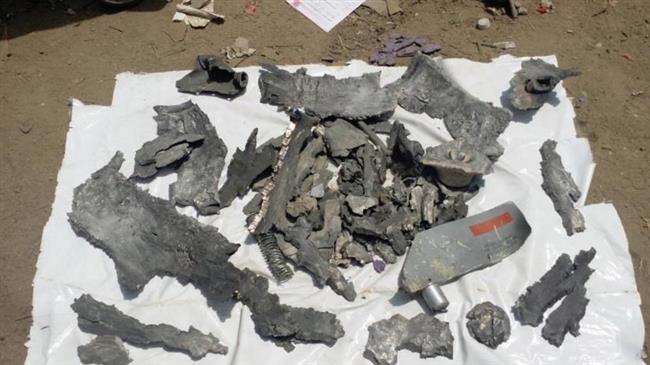
Munitions experts have confirmed that a bomb used by Saudi Arabia in last weeks attack on a school bus in Yemen that killed dozens of children had been supplied by the US.
The experts told CNN on Friday that the bomb was a 227-kilogram laser-guided Mark 82 bomb.
They also noted that the numbers on the weapon identified major US military contractor Lockheed Martin as its maker.
The Saudi air raid on Sa’ada hit a school bus on August 9 as it drove through a market in the town of Dhahyan, sparking outrage from international human rights groups and UN officials.
The attack killed a total of 51 people, among them 40 children, and left 79 others wounded.
Earlier this week, a local journalist said recovered bomb fragments showed that it was likely manufactured in the US.
Riyadh initially described the Saada strike as a "legitimate military action," but later launched an investigation into the incident amid mounting criticism of its bloody war on Yemen.
Asked about CNNs report, Saudi "coalition" spokesman Colonel Turki al-Maliki said that it would not "be appropriate for the coalition to comment further while the investigation is underway."
The report also said that the bomb used in the Saada airstrike was very similar to the one that hit a funeral hall in the Yemeni capital, Sanaa, in October 2016, killing 155 people and injuring 525 others.
Yemeni school children cheering and laughing moments before deadly Saudi air strike#SaudiWarOnYemen #YemenChildren pic.twitter.com/J5U0OeLHgX
— Press TV (@PressTV) August 14, 2018
In December that year, the US cancelled the sale of precision-guided munitions to Saudi Arabia because of concerns about civilian casualties. In March 2017, however, the US administration under President Donald Trump overturned the ban.
Retired Rear Admiral John Kirby claimed that the government of former President Barack Obama had "deep concerns about the way the Saudis were targeting, and we acted on those concerns by limiting the kinds of munitions that they were being given and stridently trying to argue for them to be more careful and cautious."
Recent fatal Saudi airstrikes have highlighted the issue of the US complicity in the deaths of the Yemenis.
Sanaa protest
On Friday, thousands of Yemenis took to the streets of Sanaa to condemn the economic hardship caused by the US-backed Saudi war.
Protester Abdulrahman Fayaa said, "Saudi Arabia and the United States which lead the aggression against Yemen are the reasons behind the increase in prices."
"They are the reasons behind this systematic process targeting the Yemeni riyal. Because the reason for the recession of the Yemeni riyal are those countries who started the aggression and are targeting the Yemeni people, their food and livelihood."
War goes on
Separately on Friday, the Yemeni army fired a ballistic missile at the kingdoms southern Narran region in retaliation for the deadly military campaign on the impoverished state.
Irans Arabic-language Al-Alam news network reported Yemeni soldiers and Popular Committees fighters had targeted a new Saudi military base in Najran with a Badr 1-type missile.
Additionally, Yemen’s al-Masirah television network reported a Saudi airstrike on the Hamadan district in Sanaa Province.
Saudi Arabia and its allies launched a brutal war, code-named Operation Decisive Storm, against Yemen in March 2015 in an attempt to reinstall former Yemeni President Abd Rabbuh Mansur Hadi, a staunch ally of Riyadh, and crush the Houthi Ansarullah movement.
The offensive initially consisted of a bombing campaign, but was later coupled with a naval blockade and the deployment of ground forces into Yemen.
The imposed war, however, has so far failed to achieve its goals, thanks to stiff resistance from Yemeni troops and allied Houthi fighters.
Several Western countries have been supplying Saudi Arabia with advanced weapons and military equipment.
LINK: https://www.ansarpress.com/english/10198
TAGS:































 online news tv
online news tv




